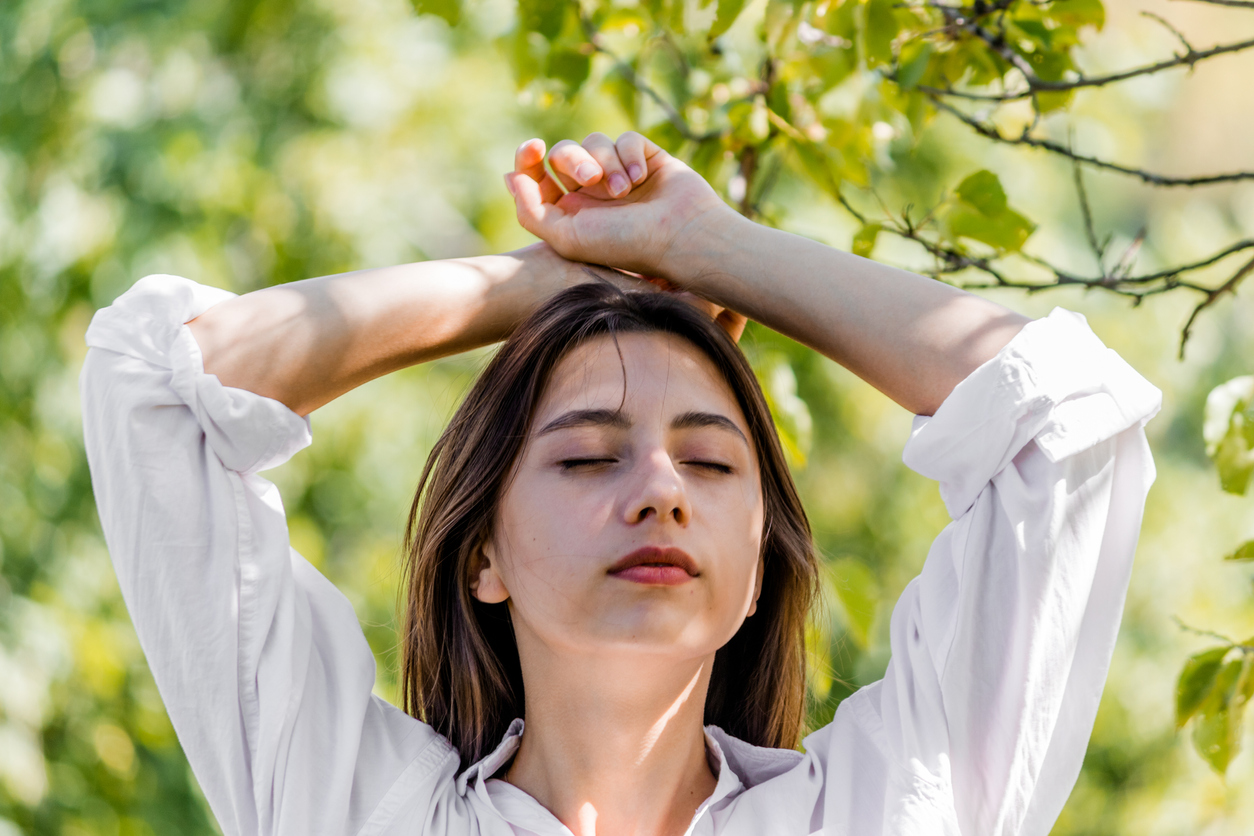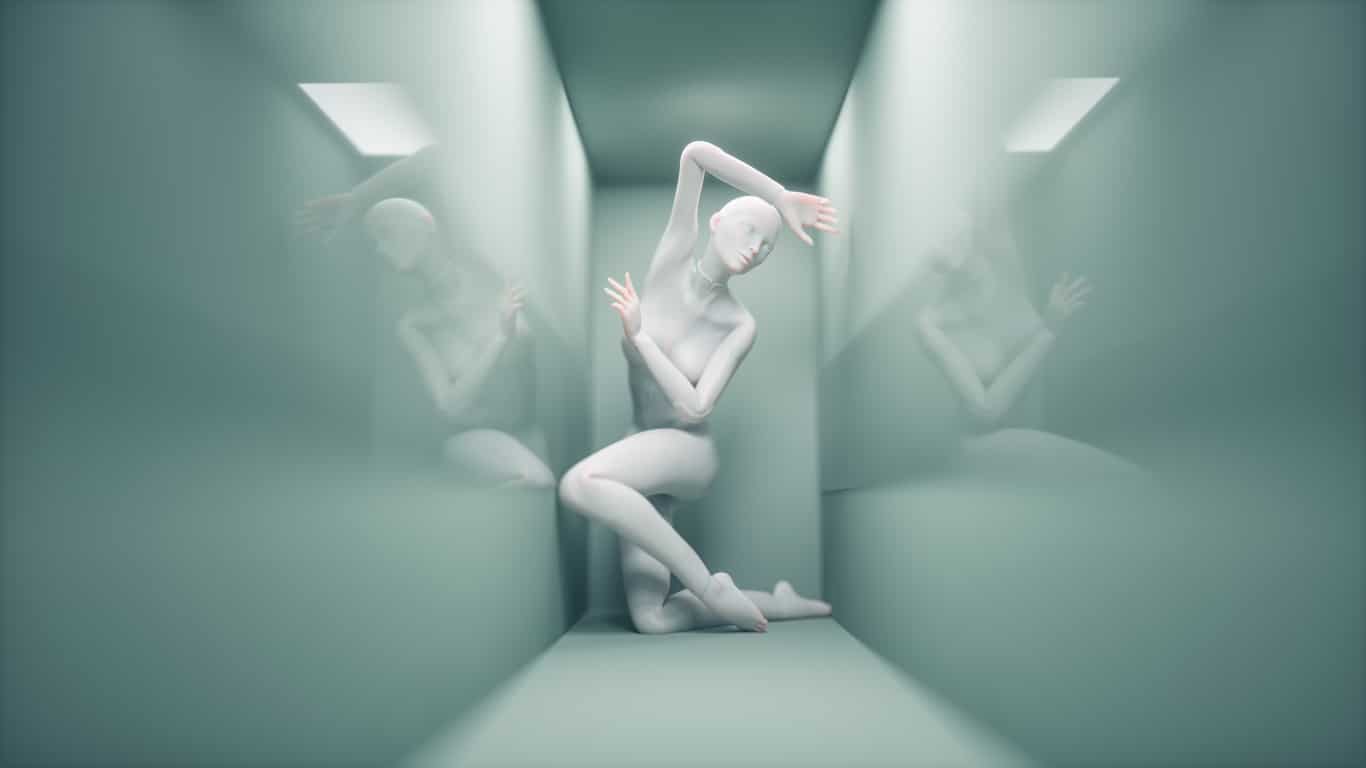Reduce Anxiety and Depression
Exercise can reduce negative feelings associated with anxiety and depression.
Getting up and moving your body can quickly change your mood and improve your emotions. Staying healthy and fit can increase your self-esteem.
The Best Types of Exercise for Natural Anxiety and Depression Relief
Anxiety relief can come in many forms. However, exercise is one of the most amazing solutions out there. Not only does it make you feel good on a physical health level, but it can have an enormous impact on your mental well-being too.
If you are ready to work out for a better mindset but not sure which exercises to try. Here are a few of our favorites to help get you started.
Running
Before “running” to the next suggestion, just hear us out. While many people wince at the thought of running, it can be a very therapeutic experience. Running is how many people relieve stress, believe it or not.
There are many reasons running can be a fantastic way to relieve anxiety and depression.
Benefits of running:
- Releases those “feel-good” endorphins: Endorphins are the brain chemicals that can enhance the feeling of well-being naturally.
- Gives You an Escape- While you run, you can let your mind wander, thinking about any topic you choose and avoiding, for a short period, the stressors in life.
- Builds Confidence– Running is a significant form of exercise, which will get you into great shape when done regularly. This can aid in self-confidence, reducing depression.
Yoga
Running can help with anxiety and depression, but it’s okay if someone can’t run or doesn’t want to.
A softer approach to exercising for your mental health can come in the form of Yoga. Used for centuries to assist in physical and mental well-being.
There are various forms of Yoga, such as Hatha, Kundalini, and Vinyasa, all of them being just as good for you as the next. It is up to you to find which option works best and tackles the inner demons you struggle with daily.
Benefits of Yoga:
- Controlled Yoga movement reduce body tension: Improving overall well-being.
- Deep Breathing: Deep breathing is a big part of the Yoga practice; this helps to calm the mind, improve focus, and balance emotions.
- Relaxing: Yoga is a type of exercise considered by many to be relaxing. You can slow down racing thoughts and simply be present in the workout.
Nature Walks
We recommend people walk at least 5 times a week for about 30 minutes a day for the optimal health benefits. Going into a quiet natural setting for just 5 minutes can benefit mental health.
True, longer benefit heart health, weight management, and other various physical ailments. But we can notice mental benefits in a matter of minutes if you are feeling overly anxious or have a bout of depression coming on.
Carve out time on your lunch break to go for a quick 20-minute walk around the block or make it routine to go hiking on the weekends. If you can’t get out and walk, just sitting outside in the grass or placing your bare feet on top of the earth for a short period can really ease your mind.
Benefits of walking outside:
- Fresh air is key: Fresh air provides ample oxygen to your brain, which helps you think more clearly and aids in better decision-making.
- Calms the nerves: Being outside is a great way to calm your nerves, which will lower your anxiety levels and ease stress.
- Stimulates the Senses: Walking outside is a good way to stimulate your senses and bring awareness to your surroundings. When in nature, you can learn to appreciate the smaller things and stress less about the other stuff.
Krav Maga
Krav Maga is a form of martial arts specifically designed to teach self-defense. It is a very intense practice that might not be for everyone. If you struggle with Krav Maga, other forms of martial arts can aid similarly, such as boxing, karate, or Ju-Jitsu.
Krav Maga classes provide self-defense skills, physical health benefits, and improved mental health.
Benefits of Krav Maga:
- Boosts Self-worth: Practicing Krav Maga can be empowering. Knowing how to protect yourself can lower stress and build confidence.
- Increases productivity: To improve in this practice, spend regular time in Krav Maga classes. A good routine and schedule can help ease stress, therefore relieving symptoms of depression and anxiety.
- Improves Socialization: Krav Maga classes can also build on relationships. Many people form strong bonds with classmates and teachers. Having these relationships helps ease the feeling of loneliness or the sense of not belonging.
Move, Stretch, and Sweat to a Healthier Mind, Body, and Soul
All professionals agree that physical activity is beneficial for mental and emotional health. When you are feeling strong, healthy, and confident, you are better equipped to handle the daily stressors life brings.
Select one of the four energizing workouts or find something more suitable for you. There is no one-size-fits-all for finding your “best self.” But it takes a bit of hard work and commitment.
OTHER WAYS TO REDUCE ANXIETY
There are numerous strategies and techniques available to reduce anxiety and promote a sense of calm and well-being. Each individual may find different methods effective, depending on their preferences and circumstances. Some common approaches include engaging in regular exercise, practicing relaxation techniques like deep breathing and meditation, seeking social support, maintaining a balanced diet, getting quality sleep, and engaging in activities that bring joy and relaxation. Additionally, therapies such as cognitive-behavioral therapy (CBT), mindfulness-based stress reduction (MBSR), and counseling can provide valuable tools and support for managing anxiety. It’s important to explore and experiment with different strategies to find what works best for you, and consulting with a healthcare professional can provide personalized guidance and support along the way. Remember, reducing anxiety is a process that requires patience, self-care, and a commitment to your well-being.
Overthinking feeds anxiety by amplifying perceived threats, distorting perspectives, hindering decision-making, and preventing individuals from fully experiencing the present moment. Recognizing and managing overthinking patterns can be a crucial step in reducing anxiety and promoting a calmer, more balanced mindset.
Subscribe To Our Newsletter
BE NOTIFIED ABOUT NEW RELEASES, BOOK TOURS, MORE
We keep your email private and never sell your information.



